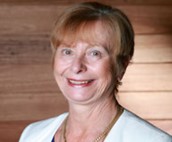
by Anthea Rutter
Over the past two years I have written a monthly blog on our AES Fellows, including Jenny Neale who we sadly lost in 2019.
Looking at the demographics we are a good mix of men and women (with nine male and 11 female Fellows) and cover most states in Australia. However, there are still some gaps in our representation – with no current Fellows from Queensland and the Northern Territory and no Indigenous Fellows.
The process of becoming a Fellow in the AES is very thorough. Apart from needing to be nominated by two people, prospective Fellows have to demonstrate knowledge and experience in a number of areas, including practical evaluation, teaching as well as holding office in the AES. For myself, I regard being a Fellow as an honour as well as a responsibility.
As a group the Fellows, have amassed an abundance of skills and expertise. I felt it was a real privilege to interview them to understand their hopes and their disappointments, as well as their career highlights. This final piece on our Fellows sums up their insights and my own. As professionals in their field, they have honed their craft and have given back to their profession in spades

